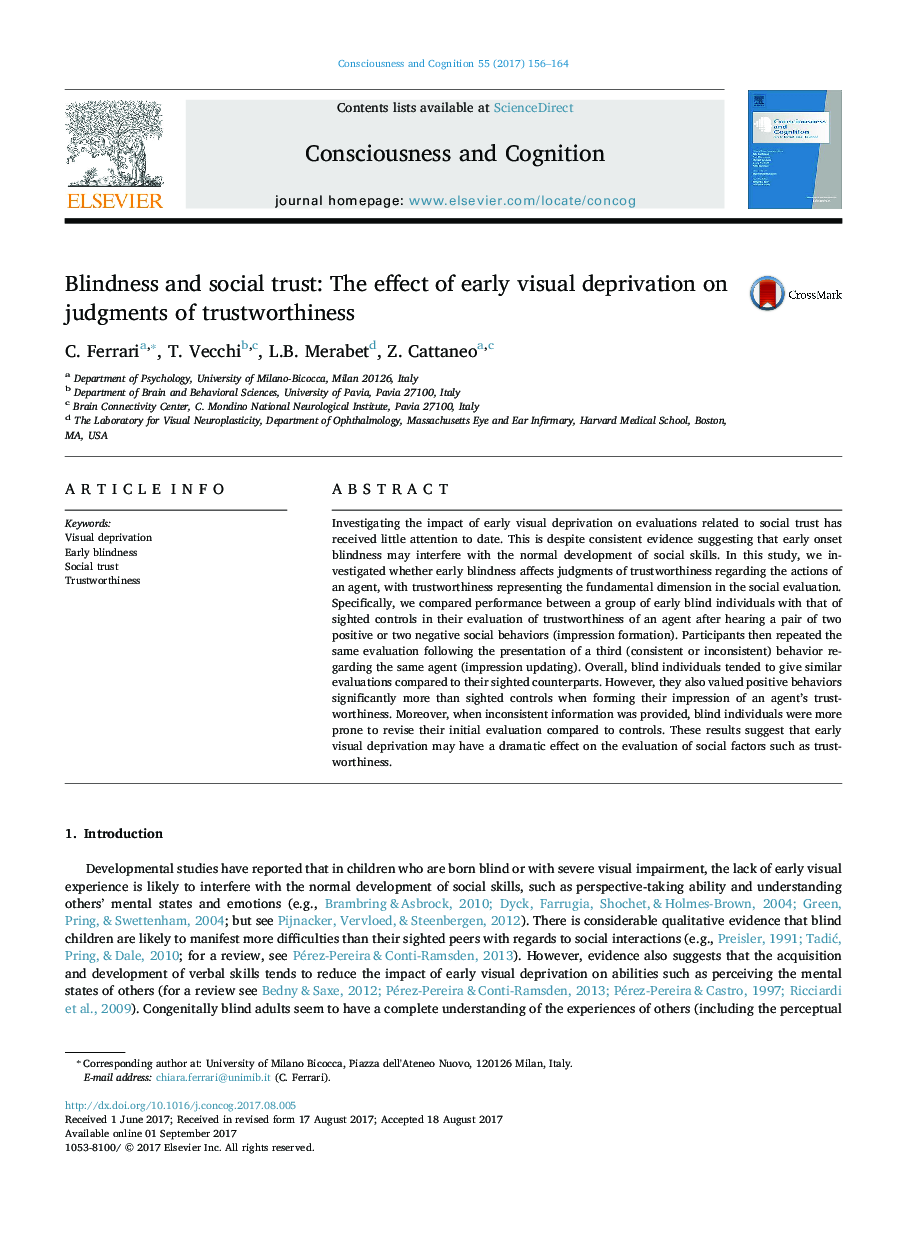| Article ID | Journal | Published Year | Pages | File Type |
|---|---|---|---|---|
| 5041745 | Consciousness and Cognition | 2017 | 9 Pages |
â¢Whether early blindness affects social evaluation has been little investigated.â¢We asked participants to make inferences about others' trustworthiness.â¢Evaluations were formed upon listening to positive or negative behaviors.â¢Blind participants valued positive behaviors more than sighted controls.â¢Blind subjects were more prone to revise their evaluation compared to sighted ones.
Investigating the impact of early visual deprivation on evaluations related to social trust has received little attention to date. This is despite consistent evidence suggesting that early onset blindness may interfere with the normal development of social skills. In this study, we investigated whether early blindness affects judgments of trustworthiness regarding the actions of an agent, with trustworthiness representing the fundamental dimension in the social evaluation. Specifically, we compared performance between a group of early blind individuals with that of sighted controls in their evaluation of trustworthiness of an agent after hearing a pair of two positive or two negative social behaviors (impression formation). Participants then repeated the same evaluation following the presentation of a third (consistent or inconsistent) behavior regarding the same agent (impression updating). Overall, blind individuals tended to give similar evaluations compared to their sighted counterparts. However, they also valued positive behaviors significantly more than sighted controls when forming their impression of an agent's trustworthiness. Moreover, when inconsistent information was provided, blind individuals were more prone to revise their initial evaluation compared to controls. These results suggest that early visual deprivation may have a dramatic effect on the evaluation of social factors such as trustworthiness.
